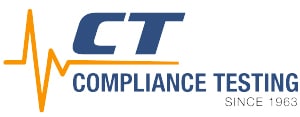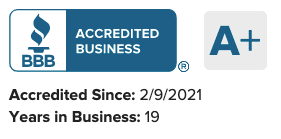As an electronics manufacturer, understanding the regulations in your target market is a critical step in gaining market access and remaining legally compliant.
In the United States, electronic devices that emit radio frequency (RF) energy are regulated by the Federal Communications Commission, or FCC. In the EU, the European Commission sets standards for electronic devices via the CE mark and its numerous directives.
In Canada, Innovation, Science and Economic Development Canada (ISED) is the department of government responsible for regulating electronic devices.
ISED ensures that electronic devices sold in Canada meet the country’s legal requirements for radio communication and broadcasting, including electromagnetic compatibility (EMC).
Getting ISED certification for your device is a key step in accessing the Canadian market. The process of receiving ISED approval includes testing your electronic device and working with a Foreign Certification Body (FCB) to ensure it meets ISED’s standards.
As an accredited testing lab, we can help you test your device for compliance with ISED, FCC, EU and other standards. Contact us online or call us at 866-540-5287 to request a free quote, ask our team a question, or talk to our engineers about testing and compliance.
What is ISED?
ISED is a Canadian government department that’s responsible for supporting Canadian science, innovation and economic development. It regulates many product categories, including electrical devices and equipment sold in the Canadian market.
Prior to 2015, ISED was referred to as Industry Canada, or IC. Its name was changed as part of a restructuring in the Canadian government that expanded its scope.
ISED & Electronics Regulation in Canada
ISED has a broad scope and is responsible for regulating many aspects of Canada’s economic development, industry, and science and technology agenda. Among other things, ISED sets the standards for electronic devices sold within the Canadian market.
The main goal of ISED, at least from the perspective of electronic devices, is to ensure that any electronic products sold in Canada meet minimum standards, including performance standards for electromagnetic compatibility to prevent them from interfering with other devices.
As a manufacturer, obtaining ISED certification means that your product meets these standards and can be marketed in Canada.
Much like the FCC mark in the United States or CE mark in Europe, ISED certification means a device carries an ISED certification mark. This is usually referred to as a certification number or ISED label, and it needs to be visible on your product when it goes on the market.
Also like in the United States, failing to achieve ISED compliance can potentially result in fines or other penalties. ISED can take legal action against non-compliant device vendors, including through fines, removal of products from the market and other legal actions.
In other words, ISED certification isn’t just critical to prove your product works as intended and offers electromagnetic compatibility — it’s also a key legal asset that protects you, as the device manufacturer, from potentially costly legal action.
ISED Standards vs. FCC Part 15
In the United States, the FCC is responsible for regulating electronic devices and ensuring they are compatible with one-another. The most well-known FCC regulation for electronics is Part 15, which addresses the issue of RF interference from electronic devices.
ISED Certification vs. FCC Part 15 Compliance
ISED standards and FCC Part 15 include many similarities. In fact, ISED has harmonized many of its requirements for certifying radio frequency devices to complement those of the FCC, albeit with some key differences.
Under ISED regulations, manufacturers and distributors of electronic devices that can potentially cause interference have several responsibilities:
- Devices must be tested to verify that they meet ISED’s technical standards.
- If required, the device must receive a Technical Acceptance Certificate (TAC).
- The device must be labeled to clearly identify that it complies with ISED standards.
ISED defines electronic devices under two categories:
- Category 1 devices. These devices require a Technical Acceptance Certificate. Radio transmitter devices are included in this category, need to be ISED certified, and need to be placed on ISED’s radio equipment list (REL).
- Category 2 devices. These devices do not transmit radio signals and are not required to receive a Technical Acceptance Certificate. However, these devices need to comply with ISED’s standards, as confirmed by lab testing and documentation.
Not sure which category your device belongs to? Contact us online or call us at 866-540-5287 to talk to our engineering and compliance team. We can walk you through the certification and market access process, including providing testing and compliance for your device.
How to Achieve ISED Compliance for Your Electronic Device
Understand the Certification Process
Achieving ISED compliance involves several steps, beginning with identifying the standards that apply to your electronic device. These standards vary based on your device’s ISED category, its intended use, and other factors.
You may want to consult with a compliance expert to identify the specific standards that apply to your device.
Once you know the applicable standards, the next step is to ensure that your product design is compatible with these standards and capable of passing testing.
Testing and Documentation
Like FCC Part 15, CE and other compliance labels for electronics, gaining ISED certification for your device requires completing testing with an accredited lab partner.
Testing for ISED compliance typically involves completing electromagnetic compatibility testing, radio frequency exposure, and other lab tests to measure your device’s performance in specific environments and situations.
Following testing, your lab partner will compile detailed test records. You’ll also need to prepare technical specifications and other important documentation about your device. Our compliance team will assist you in preparing documentation for ISED compliance and certification.
Certification & ISED Labeling
After completing the testing process and preparing your documentation, the last step is to apply for certification from ISED. Following approval, your device will need to clearly display the ISED certification number in order to be legally compliant with Canadian regulations.
Ongoing ISED Compliance
Like other electronic safety and performance standards, ISED standards can potentially change over time. As such, it’s important to ensure ongoing compliance, particularly when your product undergoes improvements or modifications that could affect its compliance status.
Ongoing compliance may involve re-testing your device to ensure it meets the ISED standards, updating documentation, or a combination of approaches.
Contact Us About ISED, FCC & CE Compliance
Achieving compliance with ISED regulations is a key aspect of accessing the Canadian market for your device. Our team can help you understand the requirements for compliance, complete testing, and prepare your device for entry into the Canadian market.
To request a quote for testing, or to talk to our engineering and compliance experts, contact us online or call us at 866-540-5287.



